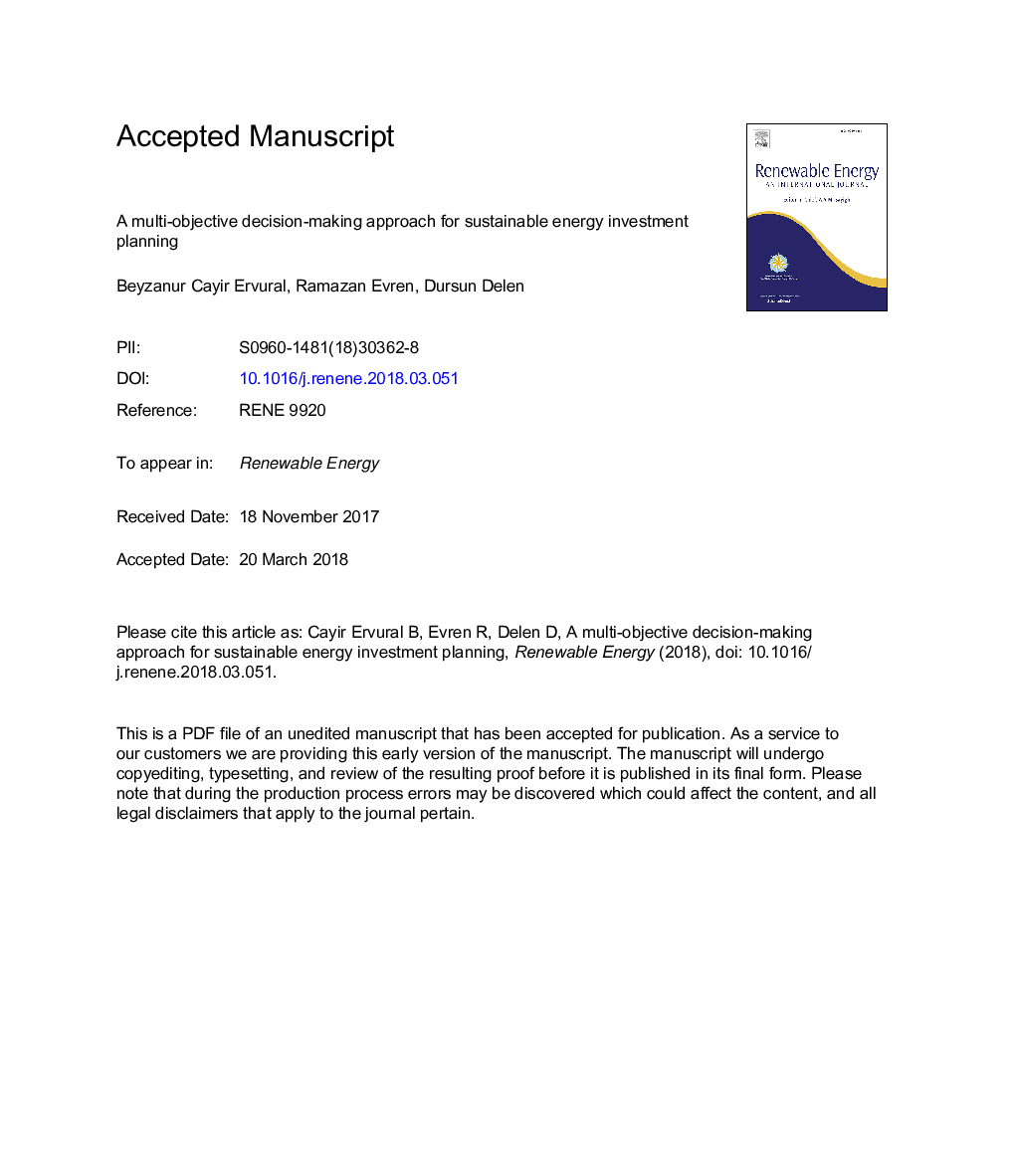| Article ID | Journal | Published Year | Pages | File Type |
|---|---|---|---|---|
| 6764254 | Renewable Energy | 2018 | 43 Pages |
Abstract
Rapidly growing energy needs require sustainable and efficient utilization of natural resources. Thus, meticulous development of long-term energy strategies and the proper planning of energy resources are critical. In this study, the energy-planning problem is investigated by formulating a multi-objective decision-making model under several realistic constraints. As an illustrative example, an energy company's renewable energy planning model is formulated. Specifically, a multi-objective mathematical model under several constraints (some of which are fuzzy) is developed to attain multiple goals simultaneously. Methodologically, (i) the energy company's plans to invest in renewable energy power plants in specific regions are formulated using a 0-1 goal programming approach, (ii) the social acceptance factor included in the model is obtained using the fuzzy Technique for Order Performance by Similarity to Ideal Solution (TOPSIS) method, and (iii) the goals are weighted by designing and implementing an Analytic Hierarchy Process (AHP) model. According to the results of the developed model, certain renewable energy generation alternatives are superior where the necessary renewable energy resources are efficiently assessed. It is also demonstrated that the proposed integrated analytics approach is capable of providing invaluable insights when the underlying model is systematically evaluated through sensitivity/scenario analyses.
Keywords
Related Topics
Physical Sciences and Engineering
Energy
Renewable Energy, Sustainability and the Environment
Authors
Beyzanur Cayir Ervural, Ramazan Evren, Dursun Delen,
